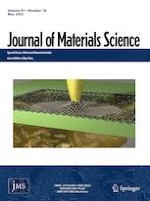05.02.2022 | Advanced Nanomaterials
Photocatalytic performance of textiles coated with titanium dioxide-reduced graphene oxide system for degradation of crude petroleum under similar solar irradiation
Erschienen in: Journal of Materials Science | Ausgabe 18/2022
EinloggenAktivieren Sie unsere intelligente Suche, um passende Fachinhalte oder Patente zu finden.
Wählen Sie Textabschnitte aus um mit Künstlicher Intelligenz passenden Patente zu finden. powered by
Markieren Sie Textabschnitte, um KI-gestützt weitere passende Inhalte zu finden. powered by
